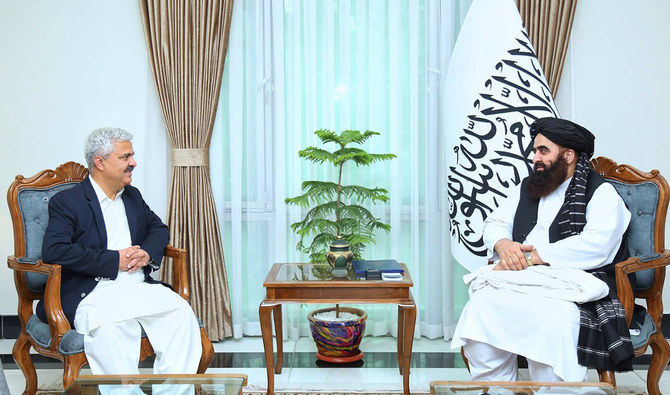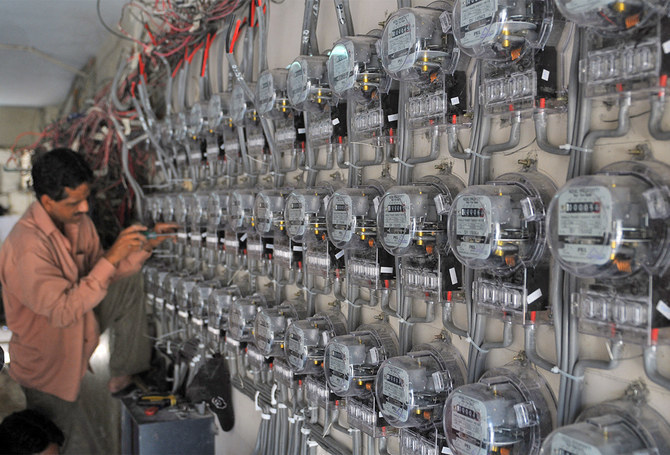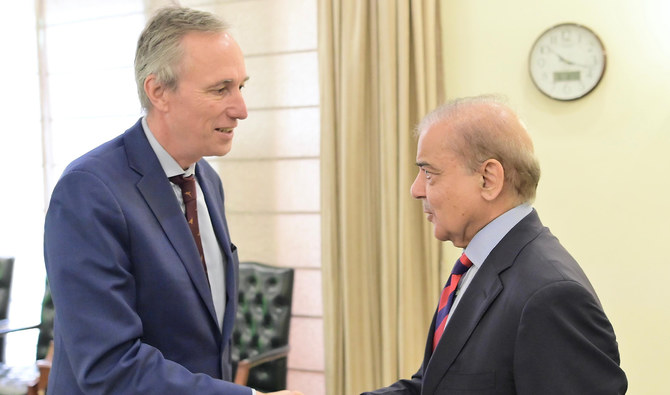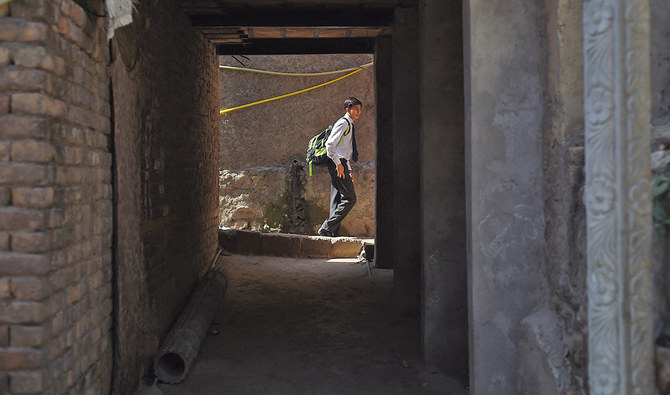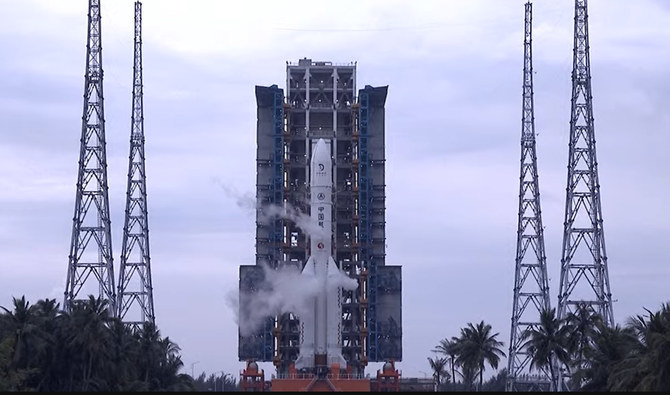PESHAWAR: Pakistan’s top diplomat in Kabul hailed the recent talks between the country’s commerce delegation and Afghan officials as “successful” on Wednesday, expressing hope it would give fresh impetus to bilateral trade between the two estranged neighbors.
Led by Commerce Ministry Secretary Khurram Agha, the Pakistani delegation arrived in Afghanistan’s capital on Monday to discuss trade-related issues. The visit occurred amid deteriorating bilateral relations following deadly several suicide attacks in Pakistan in the last couple of months that Islamabad attributes to the banned militant network, Tehreek-e-Taliban Pakistan (TTP), believed to be based in Afghanistan.
Faced with teething security challenges, Pakistan started expelling undocumented foreigners, predominantly Afghans, last November, as its officials accused Kabul of sheltering militants who target Pakistani civilians and security forces.
Discussing the recently concluded negotiations between the two countries, Pakistan’s Charge d’Affaires Ubaid-ur-Rehman Nizamani said the delegation’s visit aimed to strengthen trade ties with Afghanistan.
“I’m happy to report that this was a successful visit and both sides have agreed to work together for mutual benefit on a number of areas, he said in a video message.
“They will facilitate transit, they will facilitate bilateral trade and they will take all possible measures that create an environment for continuous and productive trade and economic relations between the two countries,” he continued.
The diplomatic tensions between the two countries over the last few months have led to economic losses, as key border crossing for trade and travel have remained intermittently closed, hitting trade-dependent business and industrial communities.
Flanked by Pakistan’s commerce secretary and the head of its mission in Kabul following the trade talks, Afghanistan’s Interim Minister for Industry and Commerce Nurudin Azizi said his side had held fruitful negotiations in a cordial environment with the visiting delegation.
“We discussed in detail with the Pakistani side specific issues related to heavy transport vehicles that will be resolved,” he informed. “We will achieve positive results as our discussions remained productive.”
Azizi hoped that issues related to trade, transportation and transit would get gradually resolved by the coming year, adding it would benefit both neighboring countries.
He said that Afghanistan expected to sign a formal agreement with Pakistan within six months, allowing Pakistani trucks to enter Afghanistan and travel to the Central Asian states and Afghan trucks to go all the way to the Pakistani port cities of Karachi and Gwadar.
Apart from discussing trade-related issues, the two sides also focused on movement of passengers, patients and businesspeople across their common border during these negotiations.
Azizi noted uninterrupted trade and business between Kabul and Islamabad would play a significant role creating a peaceful environment between the two countries and facilitate their economic development.
He said the two sides also pledged to enhance their existing trade volume, adding that both countries could become ideal markets for each other if they did not allow business to be affected by any geopolitical tensions.
The Afghan official said his country could export agricultural products to China and other countries via Pakistan ports and cities.



